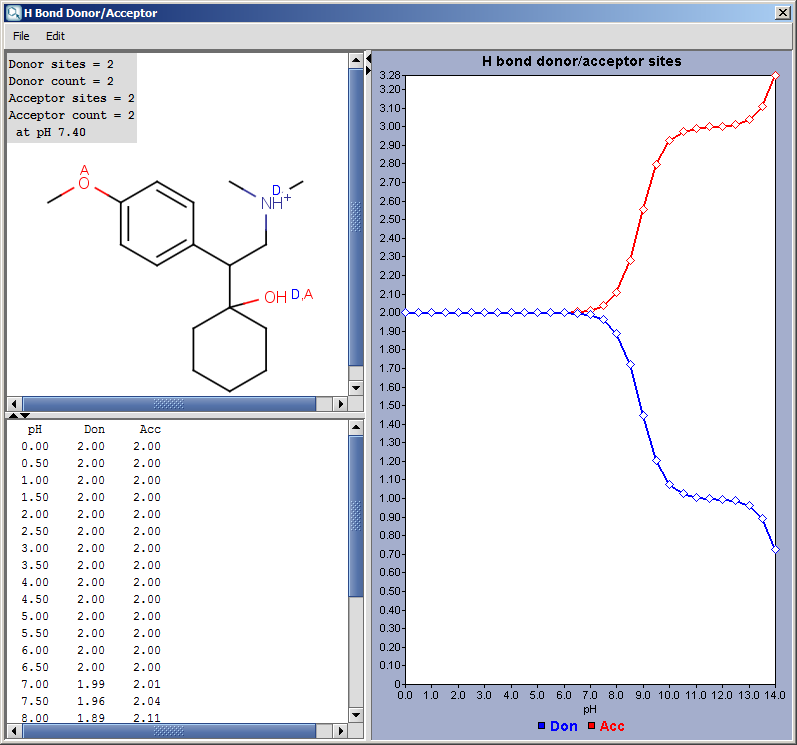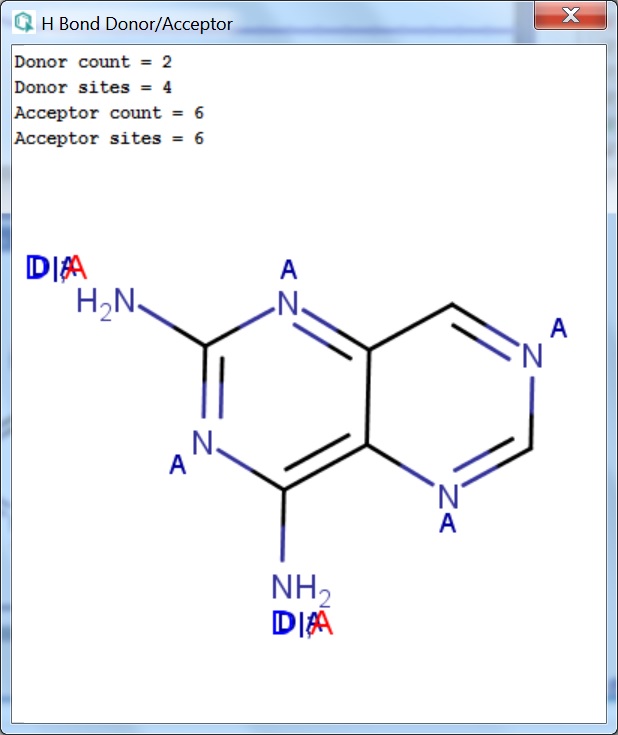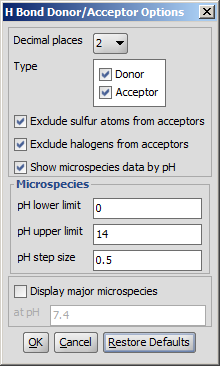Hydrogen Bond Donor Acceptor Plugin
This manual gives you a walk-through on how to use the H Bond Donor/Acceptor Plugin:
Introduction
The Hydrogen Bond Donor-Acceptor Plugin calculates atomic hydrogen bond donor and acceptor inclination. Atomic data and overall hydrogen bond donor and acceptor multiplicity are displayed for the input molecule (or its microspecies at a given pH). The weighted average hydrogen bond donor and acceptor multiplicities taken over the microspecies and the distribution of their occurrences are computed for different pHs and displayed in a chart.
The following window shows the results of a calculation.

Fig. 1 H Bond Donor/Acceptor result window
Definitions
Here are the definition of the donor/acceptor count and sites that is used in the plugin:
-
Donor count = the sum of the atoms in the molecule which have H donor property.
-
Donor sites = the sum of the H atoms connected to the donor atoms.
-
Acceptor count = the sum of the acceptor atoms. An acceptor atom always has a lone electron pair/lone electron pairs that is capable of establishing a H bond.
-
Acceptor sites = the sum of the lone pairs on the acceptor atoms.
Example
The following molecule has a Donor count of 2 and 4 Donor sites. It also has an Acceptor count of 6 and 6 Acceptor sites.

Fig. 2 Example molecule showing the different assigned HBDA features
Options
Different calculation parameters can be set in the H Bond Donor/Acceptor Options window:
-
Decimal places: setting the number of decimal places with which the result value is given.
-
Type: defined the type of calculations (donor or acceptor).
-
Exclude sulfur atoms from acceptors: if set, sulphur atoms in the acceptors are excluded.
-
Exclude halogens from acceptors: if set, halogen atoms in the acceptors are excluded.
-
Show microspecies data by pH: the number of donor or acceptor sites vs. pH chart is displayed.
-
Microspecies: set the dimensions of the pH chart with pH lower limit, pH upper limit and pH step size parameters. The default values are 0, 14 and 0.5, respectively. (see the example below)
-
Display major microspecies: the structure of the major form at the given pH is displayed.

Fig. 3 H Bond Donor/Acceptor Options